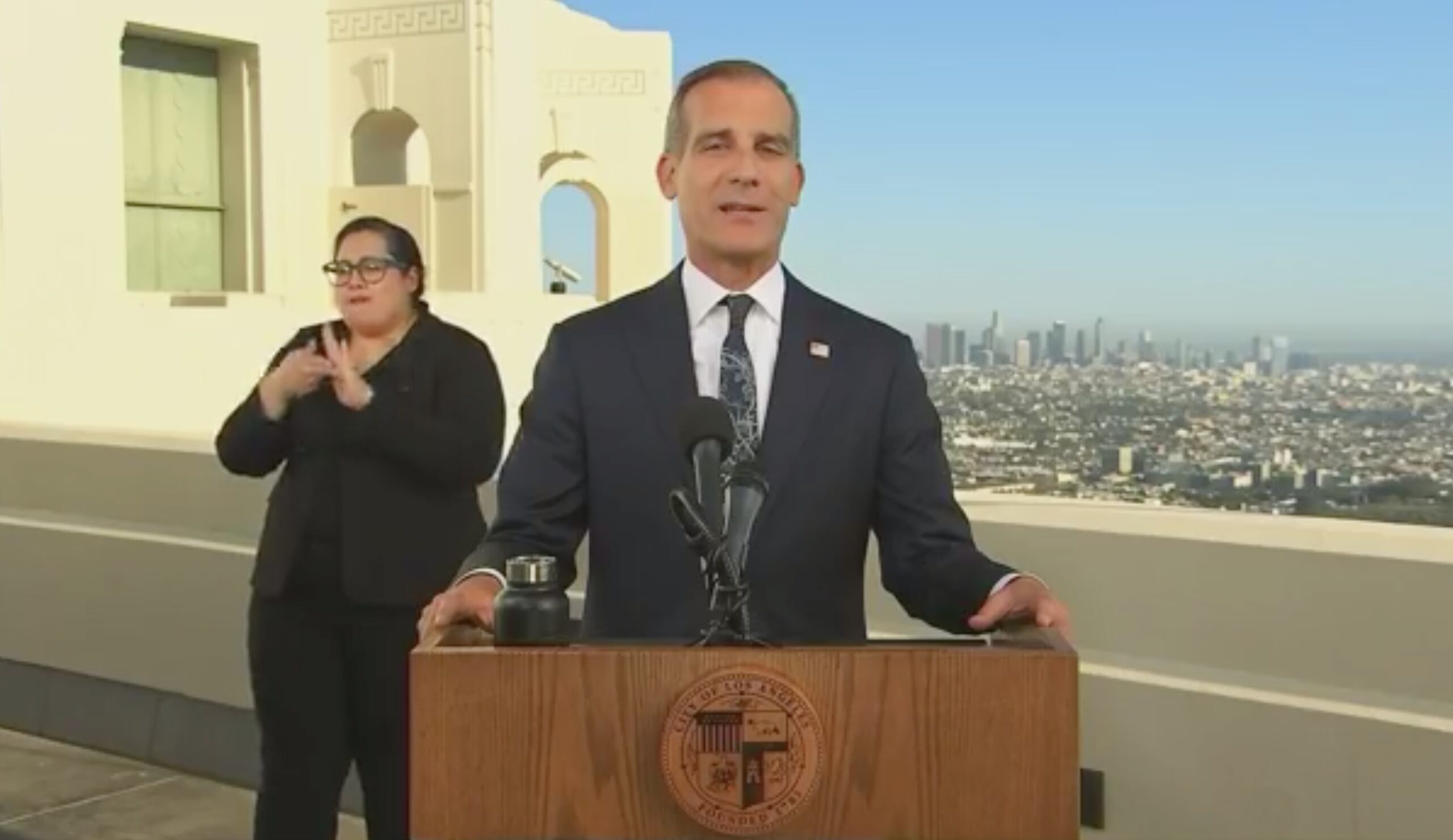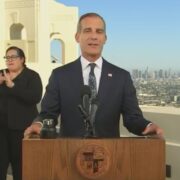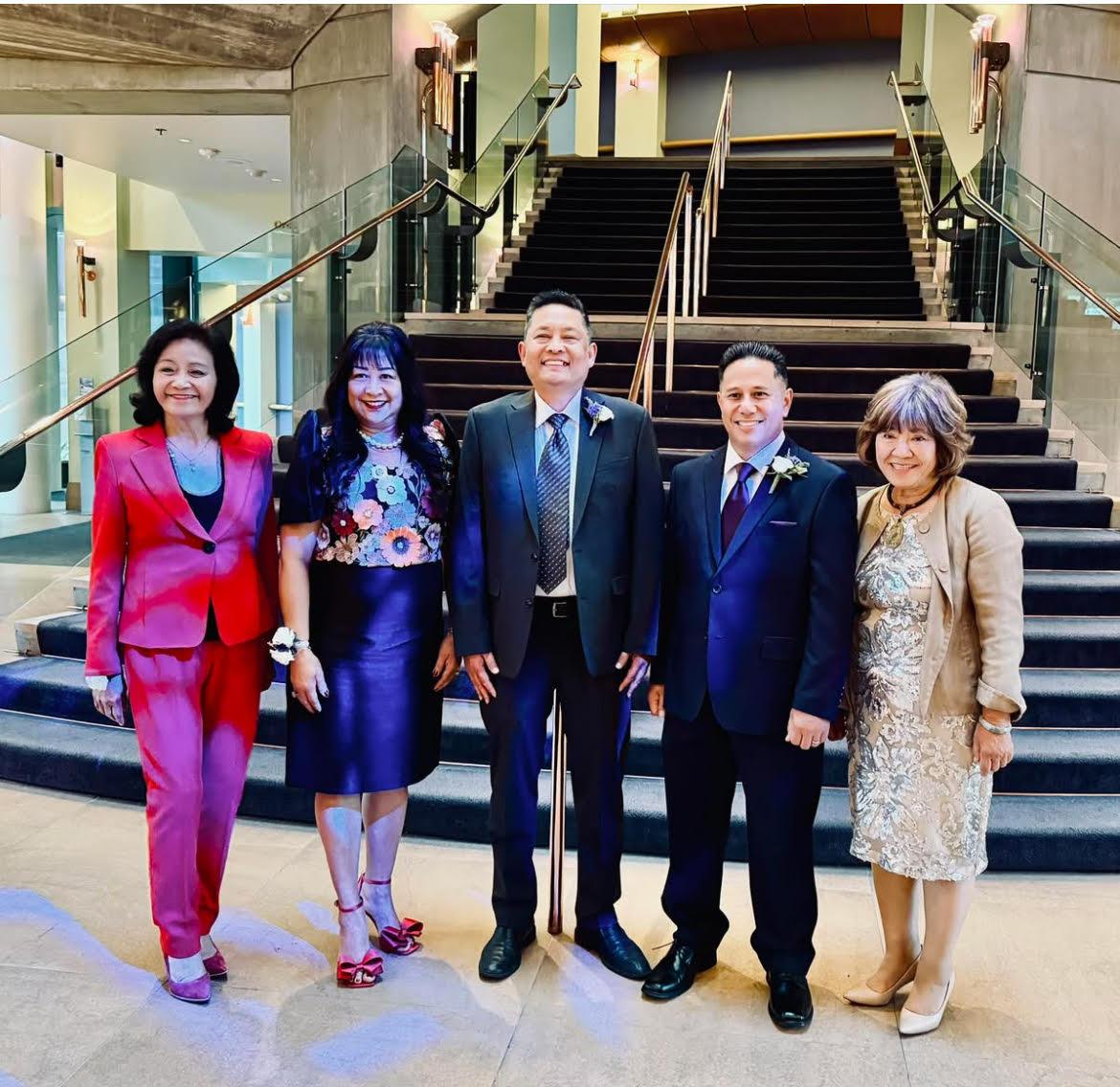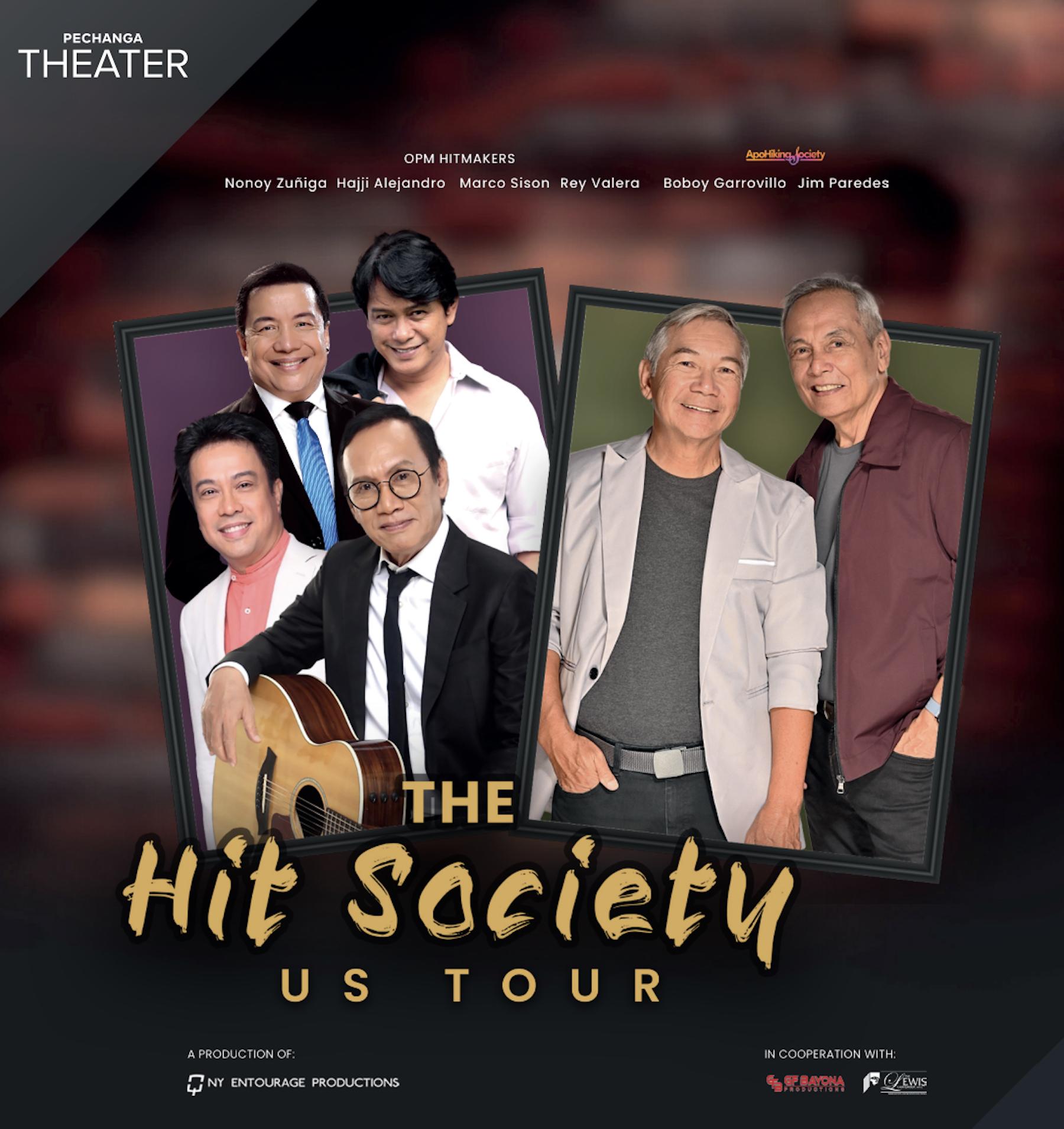
LOS Angeles Mayor Eric Garcetti delivered his annual State of the City address on Monday, April 19, in which he proposed a slew of programs that tackle recovery from the COVID-19 pandemic and the continuous calls for racial justice.
Speaking from the Griffith Observatory on Monday night, the mayor’s speech comes as the city seeks to bounce back from the pandemic, while tackling ongoing issues like homelessness and policing.
“None of us could have foreseen what this year would hold. We’ve wept through daily death tolls, each as high as a Northridge earthquake. We lost livelihoods. We lost lives,” Garcetti said.
“It is the biggest city budget I’ve ever presented. It’s the most progressive, too — arguably of any big city anywhere,” Garcetti said of the spending plan, which would go into effect on July 1.
The budget would set aside $75 million for vaccines, testing and personal protective equipment (PPE) for all Angeleno neighborhoods.
Among his proposals to address the financial impacts of the pandemic include a guaranteed basic income pilot project that would pay $1,000 monthly to 2,000 Angelenos living at or below the federal poverty line.
“We’re betting that one small but steady investment for Angeleno households will pay large dividends for health and stability across our city and light a fire across our nation,” Garcetti said.
The mayor announced a $25 million program for “comeback checks” of $5,000 to 5,000 small businesses in need of financial assistance so they can “open up and thrive.”
The money could be put toward debt payments, payroll or purchasing new equipment.
The LA Optimized program will help 1,000 small businesses move to the digital age with free website assistance, branding and marketing.
For street vendors, over $1.3 million would be allocated to purchase modernized carts and clear hurdles that prevent them from getting permits.
He also called for the city’s al fresco program to be permanent, which was introduced last May to allow restaurants to offer dining service outside, such as on sidewalks and parking lots. Almost $2 million in grants would go toward restaurants in low-income neighborhoods “to set up permanent parklets for outdoor dining.”
“If we want a strong economy, we have to help small business owners thrive,” the mayor said. “I know that in my blood.”
The mayor also announced nearly $1 billion to address the city’s continuing homeless crisis, compared to about $10 million when he first came into office.
Other highlights of the address include:
• $300 million in rental and mortgage relief, using funds from the American Rescue Plan;
• $12 million for a program called Reforms for Equity and Public Acknowledgement of Institutional Racism (REPAIR) to invest in grassroots support for job creation, racial healing, justice and reconciliation;
• Creation of the Therapeutic Unarmed Response for Neighborhoods (TURN), which would send clinicians instead of cops to respond to non-violence mental health emergencies;
• Pay fees for 505 recipients of the Deferred Action on Childhood Arrivals (DACA) in the Los Angeles Community College District “who commit to service in COVID recovery”;
• WiFi access points in 300 underserved neighborhoods;
• Clean LA Jobs for hundreds of young people to help clean up the city and find a pathway to a full-time career.






